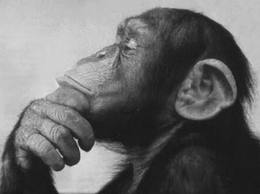Tuesday, November 30, 2010
Analyzing Great Depressed Lives: Part 1
Note: Due to it's length, this is going to be a two-part post. The first will deal with background, the second with my analysis.
I think we can learn a lot by analyzing the lives of great people. Two such people are Rabbi Menachem Mendel of Kotzk (1787-1859), and Friedrich Nietzsche (1844-1900). Both led held strikingly similar revolutionary views, and had similar upbringings. Their divergence in thought was more a product of their environment than any intrinsic difference.
Nietzsche and the Kotzer were both mentally head and shoulders above their peers. R' Menachem Mendel grew up in a religious environment, under a father who was overly critical, demanding,and authoritarian. His first Talmud teacher, from whom he learned the methods of Torah study, was of the same bent. Known as "Black Mendel", he was, in the words of his most well-known modern biographer Dr. Joseph Fox, a "self-assured, serious-minded, lonely boy" who mastered the Talmud and Jewish Codes at an early age. He had an early drive towards self-perfection which stayed with him, as far as we can tell, throughout his life. He suffered from terrible depression, and for the last 20 years of his life shut himself up in his private room, only allowing rare visitors. He felt that he was alone in his dedication to truth and said he could not take the stink of falsehood prevailing in the world.
Friedrich Nietzsche came from a religious background as well, with his father and both grandfathers having been Pastors. Again, he is described as being a loner, a voracious reader, and driven towards self-perfection. When he was 5, his father died and, left without money, the family was forced to move to a village where his mother had some friends This, along with the deaths of his younger brother, grandmother and aunt- all of whom lived with Nietzsche's family- would shape and foreshadow a life of suffering for the brilliant young man. He, too, suffered terrible lifelong depression along with various other painful physical ailments, and was similarly obsessed with exposing the truth, however uncomfortable. 11 years before his death, he suffered a mental/emotional breakdown and stayed shut up in his sister's house for the remainder of his life.
Thus ends the important similarities between the two. In their adult life, the Rebbe of Kotzk would go on to become one of the greatest religious Jewish leaders, leaving his personal stamp in Jewish thought and practice by emphasizing internal motivation over external action, while Nietzsche would go on to revolutionize secular intellectual thought by declaring the Judeo-Christian God to be effectually dead, unimportant, and, in fact, destructive to humanity. Both were upset with their religious environments. What led to the divergence in their reactions to it? Why did the Rebbe, fed up with Jewish practice, try to change it from within it's own confines, and Nietzsche leave it completely to establish his own moral ideology?
Subscribe to:
Post Comments (Atom)

No comments:
Post a Comment
Please share your thoughts with the class.
Attention dearly departed anonymous commenters:
You can still comment anonymously by selecting it from the dropdown list. You then fill in the nonsense word.
I hope you can forgive me the extra 3 seconds it takes so that I can limit spam comments.